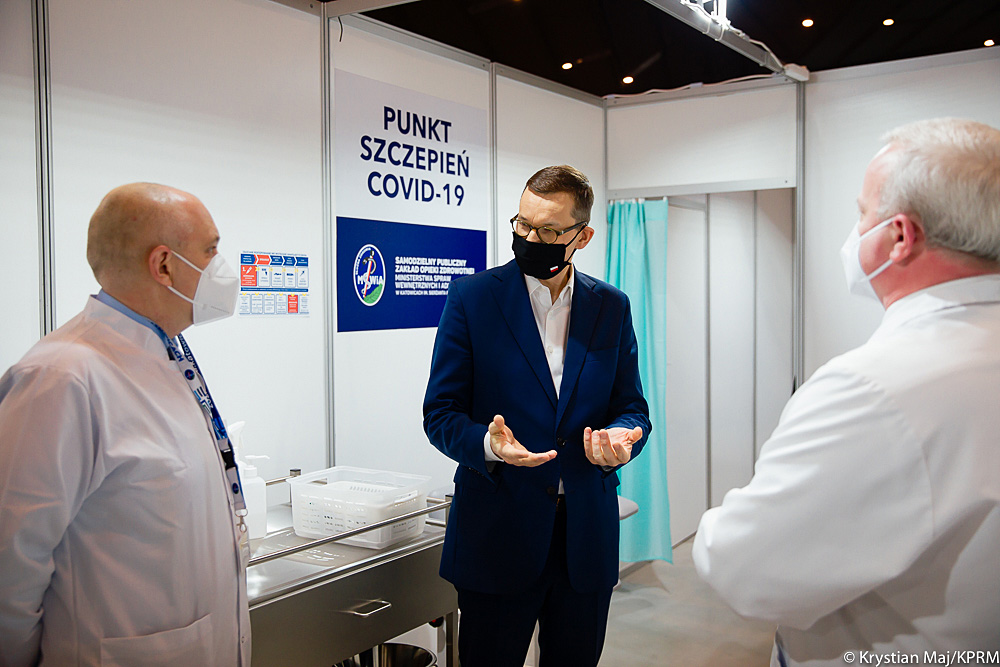Poland’s government says that it aims to build a factory producing coronavirus vaccines, to be operated by Polish pharmaceutical companies. The move would increase the supply of vaccines, amid ongoing European production delays, as well as equipping Poland to better deal with future health crises.
The proposed investment was announced as part of a “National Recovery Plan”. The programme is to be funded by the European Union to the tune of roughly €58 billion in subsidies and loans, with the aim of helping rebuild Poland’s economy after the damage caused by the pandemic.
Discussing the plan, Prime Minister Mateusz Morawiecki said that it was “necessary” to invest in “the construction of a factory or production line” for vaccines to speed up supply.
The EU has paid pharmaceutical companies over €2.7 billion to accelerate production, but, despite some improvements, they have as yet “failed to meet their obligations”, Morawiecki said.
The pandemic has emphasised the need for the European health sector to become “independent of third countries”, added the prime minister. “Polish companies also want to get involved in the vaccine production process”.
Poland’s planned vaccination schedule has faced disruption as a result of EU-wide delays in vaccine delivery. As a result, vaccinations of the so-called “zero group” – mainly comprising healthcare workers – were extended, while at one stage some hospitals suspended administering first doses.
Public consultations on the National Recovery Plan are continuing until 2 April, with the government looking to give final approval in July.
First, however, in late April, it will run the plan by Brussels, which is expected to provide €23.9 billion in subsidies and €34.2 billion in loans from the new €750 billion Covid recovery fund, which was approved in December after Poland dropped a threat to veto it along with the EU budget.
Morawiecki has outlined five pillars to Poland’s strategy: resilience and competitiveness, efficiency and quality of health care, sustainable transport, green energy and energy efficiency, and digital transformation.
The prime minister said that rebuilding the strength of Polish pharmaceutical companies will be “one of the priorities for the coming years”. This will help avoid overdependence on foreign supply chains that have been disrupted during the pandemic.
“We saw the trap that almost all of Europe found itself in due to the outsourcing of the production of drugs and medical devices to Asian countries,” Morawiecki told the Polish Press Agency (PAP). “We cannot repeat this mistake in the future.”
Since Poland’s first COVID-19 vaccination on 27 December, a total of 3,336,354 doses have been administered in the country. That equates to almost 9 per 100 people, giving Poland the EU’s fourth-highest vaccination rate as of yesterday, according to Oxford University’s Our World in Data service.
Main image credit: Krystian Maj/KPRM/Flickr (under CC BY-NC-ND 2.0)

Maria Wilczek is deputy editor of Notes from Poland. She is a regular writer for The Times, The Economist and Al Jazeera English, and has also featured in Foreign Policy, Politico Europe, The Spectator and Gazeta Wyborcza.




















